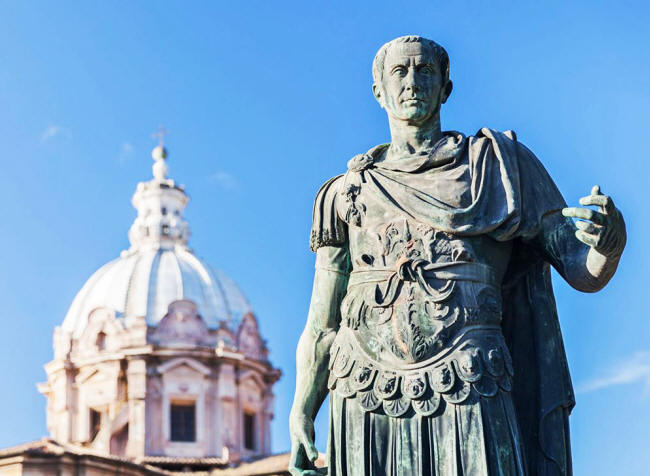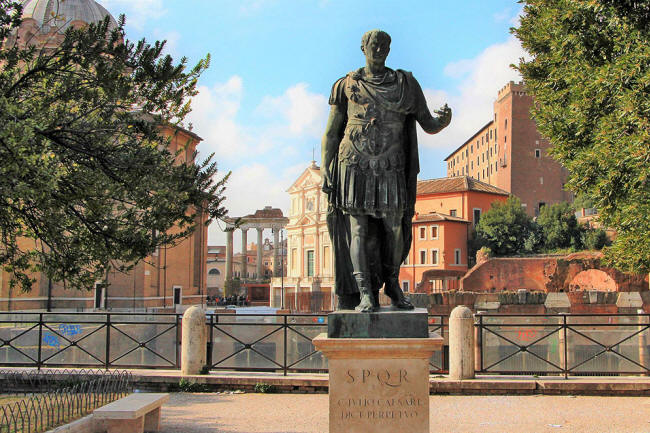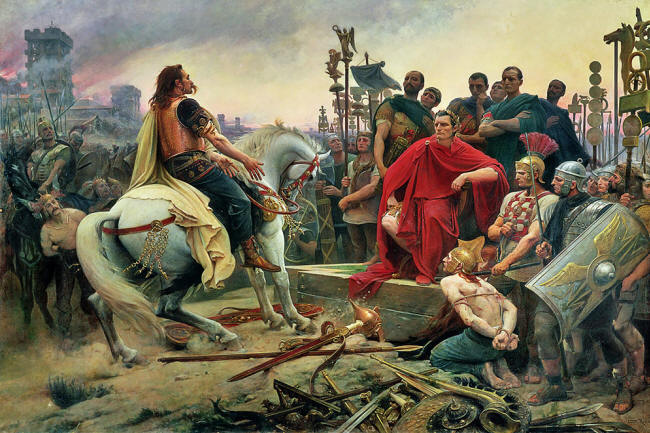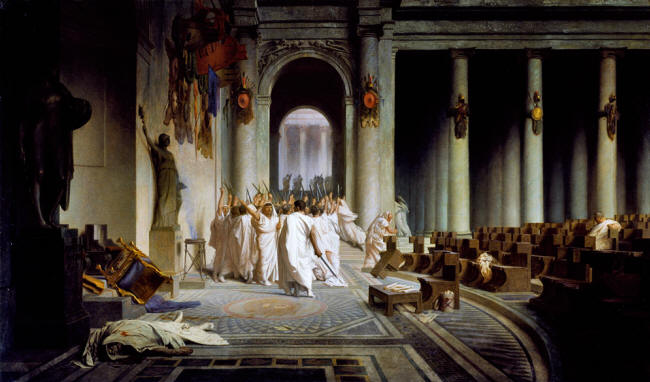|
August 12, 2020 from ClassicalWisdom Website
Spanish
version is a clichéd term but a very underrated statement, nonetheless. It is often said that something great is on the horizon when everything is going downhill. When life is pulling an individual back, it is often preparing to catapult them to greatness. The cross-section of Julius Caesar's life has the potential to instill a greater appreciation for adversity in people.
Even from early adulthood, Caesar faced a very real possibility of death after his uncle Marius's rival, Sulla, became the leader of Rome.
SPQR - Senātus Populusque Rōmānus Statue of Julius Caesar on Via dei Fori Imperiali in Rome.
Yes, his prime motivation to go on to that daring suicidal-cum-genocidal conquest of Gaul was to pay off his debt that he had been taking all his life to compensate for the losses of his properties.
His second-biggest source of adversity was his relationship with his peers, or more aptly put, his enemies...
He was rumored to have been in a homosexual relationship with the King of Bithynia.
These kinds of allegations were fairly common in ancient Rome as a political tool, but Caesar's reaction made it far worse.
He would humiliate his accusers like Cato by sleeping with their sisters and disclosing their love letters in public.
This would earn him ever-green enemies in the Senate of Rome, who would ultimately give him no option but to declare war on the Senate after his term as Governor of Gaul and his alliance with Pompey ended.
Vercingetorix throws down his arms at the feet of Julius Caesar, Lionel Royer (1852-1926). The painting depicts the surrender of the Gallic chieftain after the Battle of Alesia (52 BC).
But the "the die was cast" for Caesar.
This decision would kick-start a series of developments in the form of civil war that would result in Caesar becoming the most powerful man in Rome. During the civil war, most of his trusted lieutenants and allies would leave him to join the Senate.
Although he was able to defeat his enemies during the civil war and pardoned those who he considered as friends, his difficult relationship with his peers would not subside throughout his life.
The Death of Caesar, Jean-Léon Gérôme, 1867.
Caesar wasn't raised to become a military genius by birth like Alexander the Great.
He was a scared man running from one part of the world to another from his creditors as well as his political, judicial, and personal enemies who were constantly at his throat. Caesar reportedly used to ponder how he had wasted his entire life when he used to look at Alexander the Great's statues because, unlike Alexander, he only got his first major military command when he was at the ripe age of 40.
For the most part of his life, he himself didn't know that he was destined to,
In hindsight, if Caesar was with us today,
The adversities he initially wished weren't a part of his life eventually led him to unprecedented greatness.
As Marcus Aurelius would say,
Julius Caesar, in hindsight, would have been appreciative of the difficult life he lived...
|





